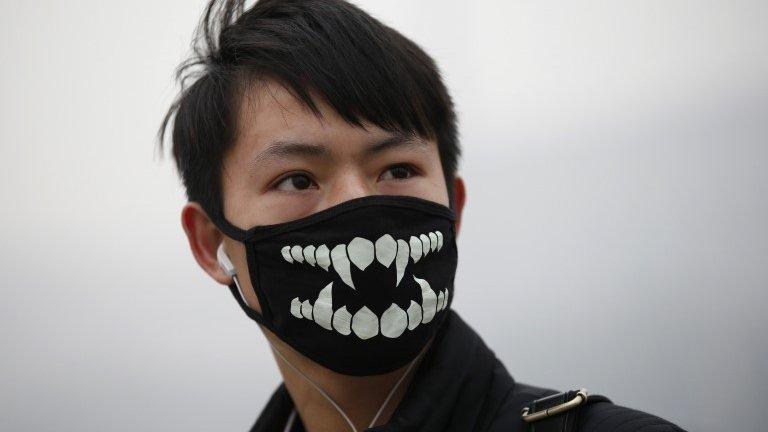Beijing pollution: Schools keep children indoors
- Published
Celia Hatton in Beijing: "The air is so polluted it's darkened the sky"
Schools in the Chinese capital Beijing have been ordered to keep children indoors amid extremely high levels of air pollution.
Pollution climbed to up to 35 times World Health Organisation safety levels on the third day of the city's "orange alert" - the second highest level.
Factories have been told to cut production and heavy duty trucks ordered off the roads.
It comes as President Xi Jinping attends the Paris climate conference.
Coal, used to power both Chinese factories and heat homes, is a major factor behind the smog, which has been exacerbated by humidity and a lack of wind.
A particularly cold November has meant a surge in coal burning, both in individuals' homes and by power plants. Most of China's power is coal-generated.
"The government is supposed to be tackling the pollution, so we need to see the effects. If in a few years the situation does not change, we will consider leaving," the Associated Press news agency quoted Yin Lina, a woman who had bought her young daughter to hospital, as saying.
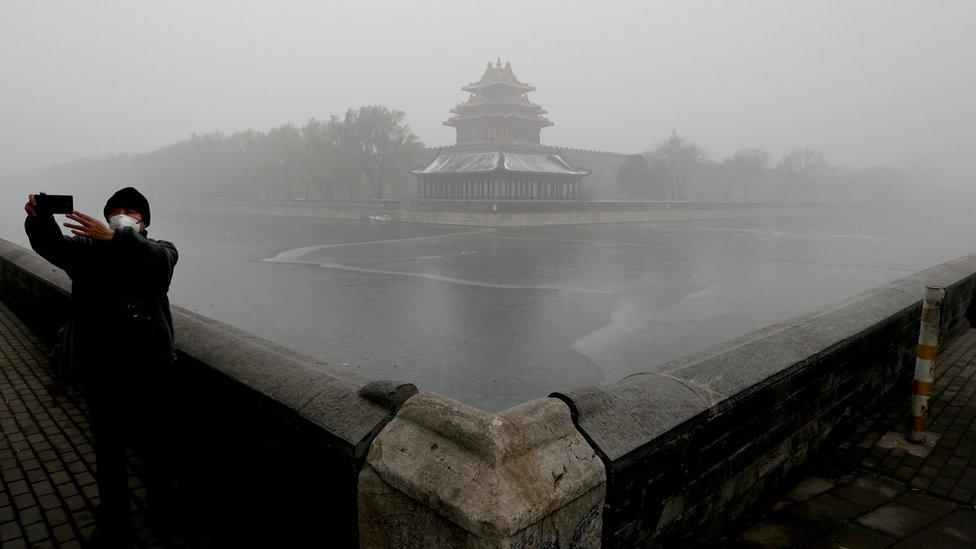
At the Forbidden City a tourist takes a selfie, despite smog obscuring his view and a mask obscuring his face
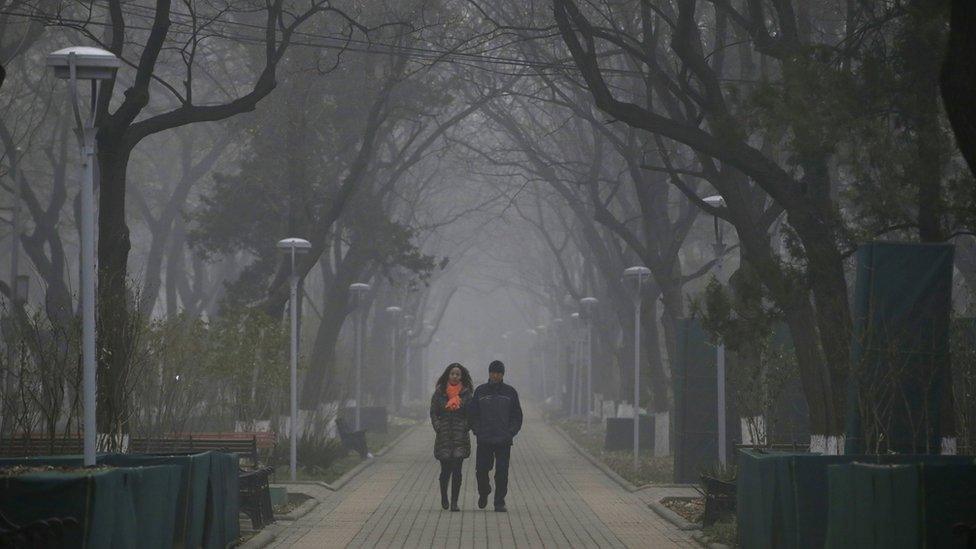
When a walk in the park is bad for your health
A measure of pollution called PM2.5 - concentrations of airborne particles smaller than 2.5 microns in diameter - hit 900 micrograms per cubic meter in southern Beijing on Monday. The WHO recommends a maximum limit of 25 micrograms per cubic meter.
Earlier this year, China's environment ministry announced that only eight of the country's 74 biggest cities had passed the government's basic air quality standards in 2014, and that many of the worst cities were in the northeast.
- Published1 December 2015
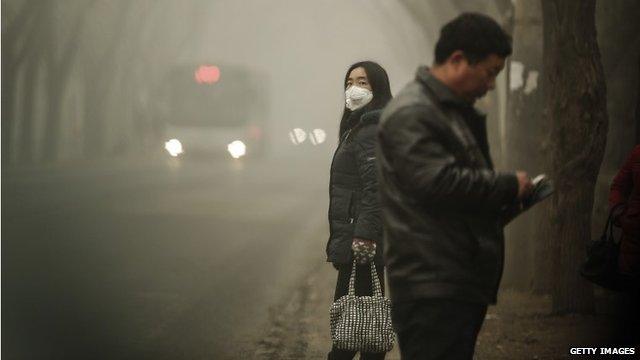
- Published29 November 2015
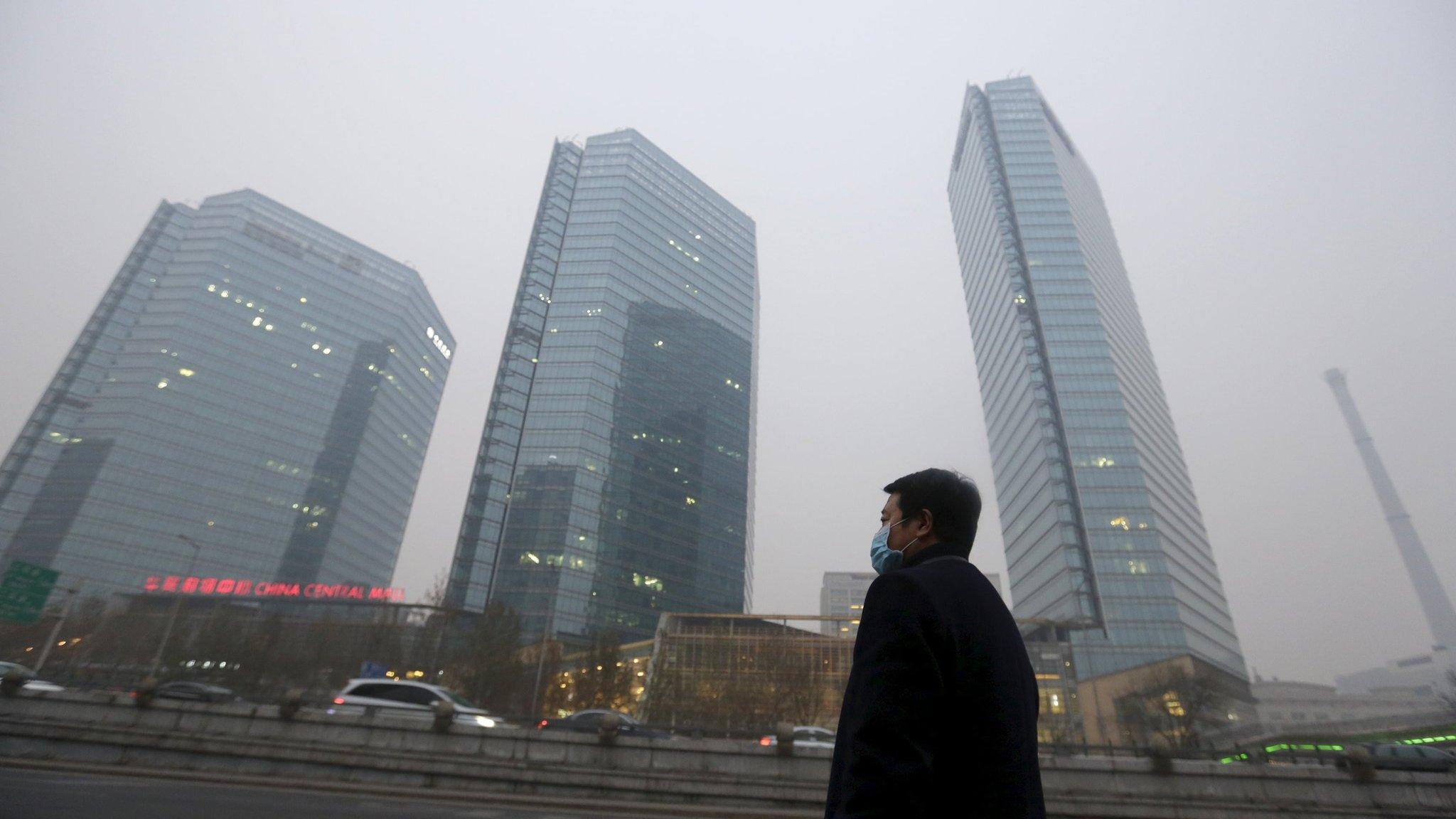
- Published3 February 2015
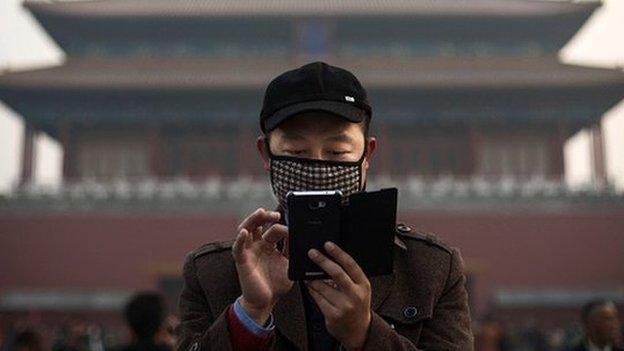
- Published2 March 2015
